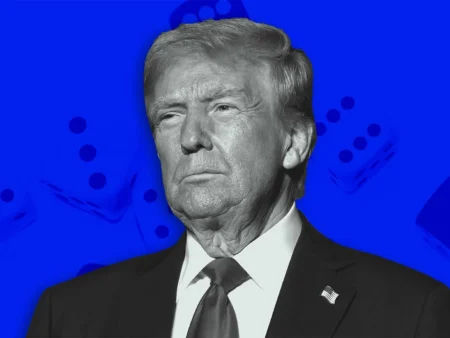Some of the UK’s biggest gambling firms have reportedly committed to stop advertising during live sports broadcasts.
Some of the UK’s biggest gambling firms have reportedly committed to stop advertising during live sports broadcasts.
William Hill, Ladbrokes, Bet365 and other members of the Remote Gaming Association (RGA) are said to have voluntarily agreed to the “whistle-to-whistle” ban on betting ads.
The news sent shares in several major gambling firms tumbling on Thursday, with 888 and GVC Holdings down 4.6 per cent and 4 per cent respectively.
It comes after campaigners and public health experts have expressed concern about the proliferation of gambling commercials, particularly during football matches.
The RGA said nothing had yet been finalised and that several options for possible enhancements to the industry’s advertising code were being considered.
The Independent understands that some online operators are holding out on signing up to the new measures, which still need to be ratified by the Industry Group for Responsible Gambling.
Horse racing will be exempt from the ban because it relies on betting to be commercially viable, according to the BBC, which first reported the proposed agreement. All other sports are expected to be included.
Dr Heather Wardle of the London School of Hygiene and Tropical Medicine welcomed the news but said the proposed restrictions are just the start.
“Gambling is heavily advertised and marketed online, through social media and through sponsorship – where it is very difficult to control who receives these messages,” she said.
“The system needs to be considered as a whole, but suggestions to stop adverts around football matches is a good starting place.
“The proof, however, is in the pudding as we wait to see how this is implemented, what the responses of other companies are to this and how companies may compensate in other areas.”
Marc Etches, chief executive of GambleAware, pointed out that the gambling industry spends about five times as much on online advertising as it does on television.
Children are growing up in a “different world” to their parents with technology always present, he said. “The fact that it is reported one in eight 11- to 16-year-olds are following gambling companies on social media is very concerning.”
Gambling Commission figures released last week estimated that 430,000 people in the UK are problem gamblers.
While the number has remained relatively stable, there are growing fears that 24/7 access to online gambling through apps, fuelled by ads before the watershed have put people at greater risk.
Despite making billions in profits last year, the gambling industry contributes just £10m towards research and treatment – 0.1 per cent of turnover.
Dr Wardle described the amount as a “pittance” compared with the amount needed to tackle gambling-related harm.
She and a group of other leading experts and campaigners in the field are supporting a mandatory industry levy of 1 per cent of profits, which would bring in more than £130m a year.
The Gambling Commission last week announced three operators of online casinos would pay a combined £14m for failing to properly protect vulnerable gamblers and prevent money laundering.
Matt Zarb-Cousin of the Campaign for Fairer Gambling said pressure had forced online gambling firms to act.
“This is long overdue, but to be truly effective it must include all operators and should also commit to bans on shirt and league sponsorship, and pitch-side scrolling displays,” he added.


